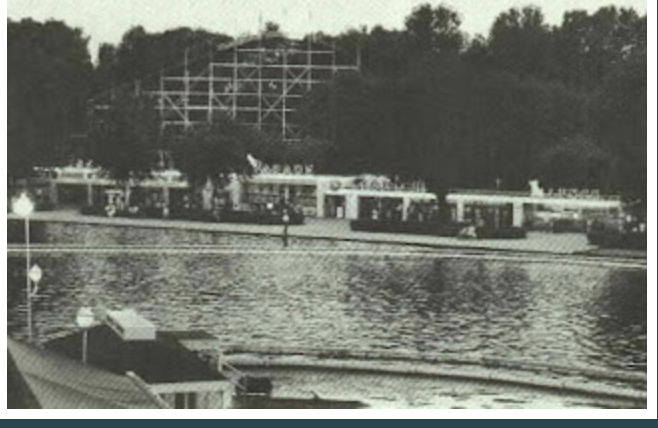A hundred years or so ago, most Americans did not live in cities.
A majority of Americans spent their entire lives living in one place, many of them never traveling more than 50 miles from where they were born. Even if they did move somewhere else when they came of age, they were usually able to return home and visit their parents, who were living where they had always lived.
Most of us have not had lives like that.
With the exception of a couple of years in Buffalo, N.Y., my grandparents lived in a small town in north central Ohio from 1895 until their deaths in 1985 and 1990. My uncle and my mother were born in Crestline, Ohio, and only one of them left the state as an adult.
Until my grandmother died at age 94, we always had the house in Crestline to return to. I remember being inside that house — the source of so many wonderful memories — for the last time the day of her funeral. I remember a conservation with my cousin Pete Kindinger.
“It’s very strange,” he said. “Strange to think that we will never be inside this house again.”
Strange, yes. Also very sad.

The first real home I remember was Huber Heights, Ohio. We moved there when I was 7, into one of the great new subdivisions of the postwar era. For all the talk of the different Levittown communities, Huber Heights billed itself as the world’s largest community of all-brick homes. By the time we moved away in 1963, there were 8,000 homes.
Now it’s 14,000 and a population of 43,000.
It was totally a bedroom community, with most of the commuters going to work either in Dayton or at Wright-Patterson Air Force Base just outside Fairborn. Dayton was a pretty big city in those days, nearly 250,000 people in the 1960 census.
We moved to Washington, D.C., in January 1963 when my dad was promoted to a job at the Pentagon, and my parents bought a house in Fairfax, Va., that my mother occupied until she died in 2020. I lived there for the better part of 12 years, which turned out to be the longest I ever lived anywhere until I married Nicole and moved to La Canada, Calif., in the fall of 1992.
So I’m from everywhere — and nowhere.
I’ve lived in Georgia for 19 years now, and my birth father was actually born here in 1927. But the places that seem more like “home” are the ones that bring back childhood memories, and most of those come from Ohio and Virginia.
I suppose my life might have been very different if we hadn’t left Ohio. I’d have attended Anthony Wayne High School instead of W.T. Woodson, and I quite possibly would have wound up at Ohio State for college.
I probably wouldn’t have stayed. I’ve always had a certain wanderlust, and even when I was 12 years old and listening to the radio, California was calling me. There was something about me that wanted to be out west where I was born.
But it’s really impossible to say. Maybe I would have formed strong enough friendships in the area. Maybe I would have married someone from my high school — lovely blonde-haired Diane McClish, my third-grade girlfriend ever so briefly, or beautiful dark-haired Claudia Dunaway.

Maybe I would still be living in the Dayton area. Maybe I would have been taking my children and grandchildren to ride the roller coasters at Le Sourdesville Lake or to our summer cabin at Indian Lake. Maybe we’d be making the 60-mile drive down to Cincinnati to see the Reds play, or over to Columbus for OSU football.
I would be a very different person, but I would definitely have a sense of place that I have never really had as an adult.
I don’t know how many places the average American lives in a lifetime, but I know I’m past that — San Diego, Chicago, Crestline, Dayton, Fairfax, Vienna, Austria, Gastonia, N.C., Anderson, S.C., St. Louis, Greeley, Colo., Reno, Nev., Southern California and now Georgia.
That’s 12, and if you figure in three more residences in the Dayton area, four additional ones in Northern Virginia and four in California, that makes 23. Two apartment changes in Gastonia, one in Reno and one in Austria lifts the total to 27, making at least 26 times in my life I have moved from one home to another.
Yes, increased mobility is definitely a mixed blessing.
